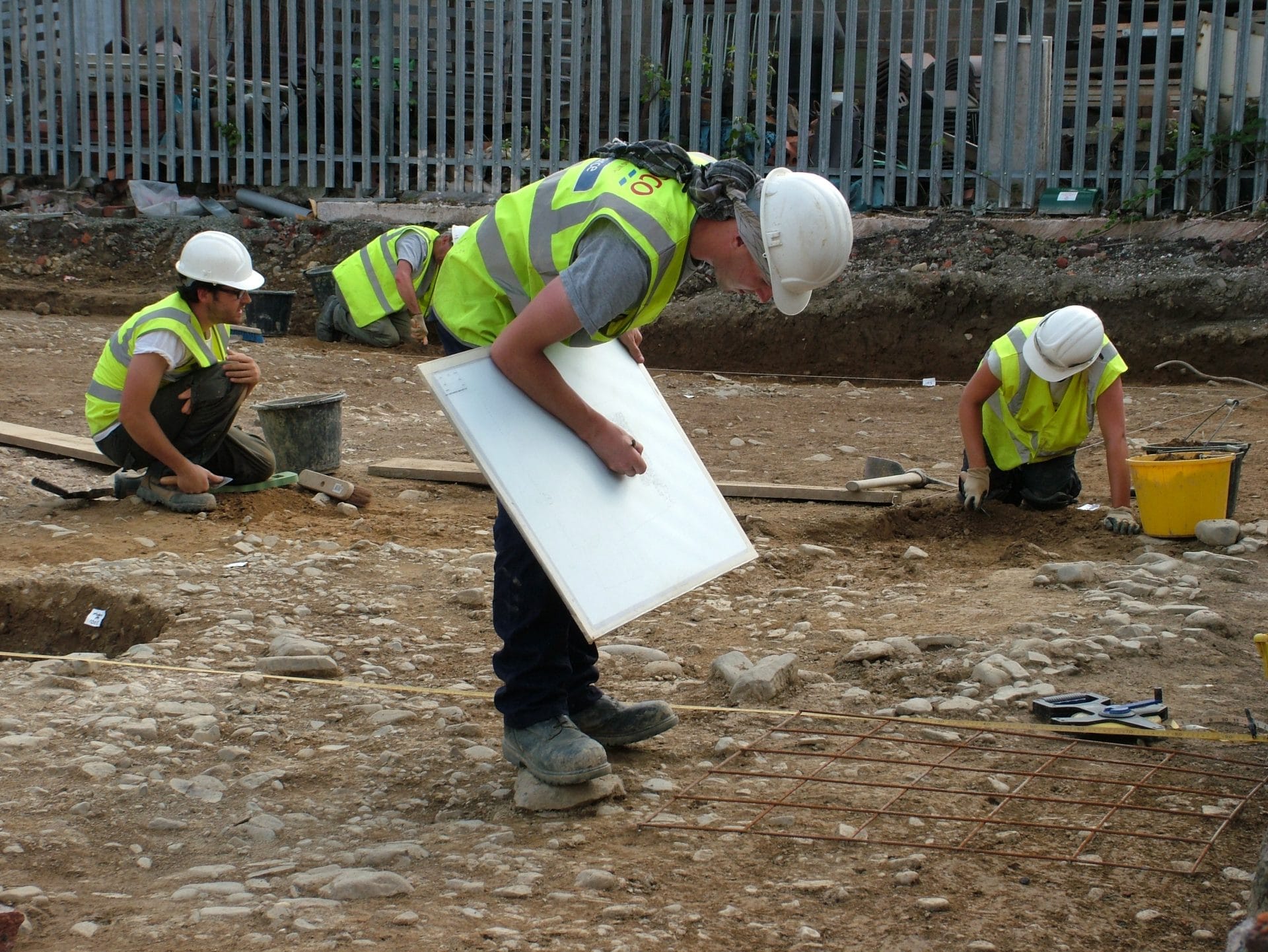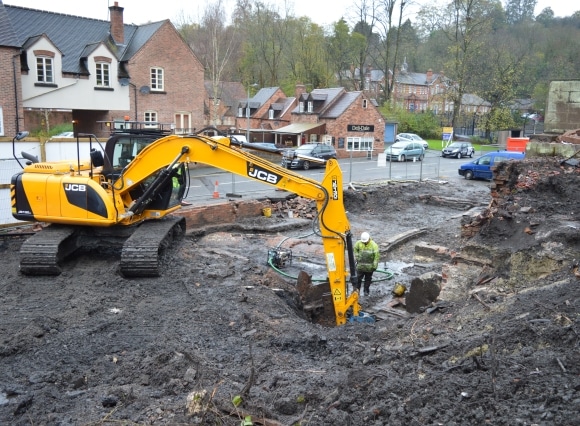Planning Services
Planning Services provides advice and support for local authorities and developers on planning applications for development submitted to local planning authorities. This work entails checking development sites against known or suspected archaeology. If necessary, a recommendation is made for archaeological work before, or as part of, the determination of planning permission. The Planning Service archaeologists will also monitor the work being undertaken to ensure that it is being done to an appropriate standard.
The Clwyd-Powys Archaeological Trust Planning Service utilises information in the regional Historic Environment Record and the specialist knowledge and expertise available within the Trust to scrutinise and comment on all planning applications that might adversely affect the historic environment.
Advice
Local planning authorities use the advice from Planning Services to assess the potential impact of development on archaeology and cultural heritage, thus trying to ensure that damage is kept to a minimum. Most developments do not have a significant impact on archaeology and cultural heritage, but when they do Planning Services may respond to consultation by local planning authorities in a number of ways. In a very few cases this response may advise that a planning application is refused in order to protect archaeology or historic buildings, but more commonly will ask for the planning authority to impose conditions on any permission granted.


Conditions might require that parts of the site are not used for building, or that parts of it are archaeologically excavated before development starts, or that an archaeologist is present during building work to carry out a watching brief (and record anything brought to light). In some cases the local authority may consider that a development effects an area of high archaeological potential but feel that they do not have enough information to decide how to treat the planning application. Here they may ask the applicant to carry out an archaeological evaluation, before they will determine the application, to gather more evidence about the likely effects that their development will have. This evaluation may consist of documentary research, survey and/or limited trial excavation, and its results will allow the planners to make a balanced decision about the future of the site. Work such as evaluation, or excavation required by planning conditions, is normally carried out by archaeological contractors.
Code of Conduct
Under the Welsh Archaeological Trusts Curatorial Code of Conduct, the Planning Services team at the Clwyd-Powys Archaeological Trust do not supply a list of archaeological contractors. Instead, we ask developers requiring an archaeological contractor to consult the Chartered Institute for Archaeologists (CIfA) list of Registered Organisations. As CIfA members ourselves, the Planning Services team are obliged to ensure that all work carried out in the region is undertaken in accordance with the CIfA Standards and Guidance. The CIfA have produced a Client Guide to help developers and others understand the role of professional archaeology in the planning process. To find out more about archaeology and planning, or to look at the impacts that your development might have on the historic environment, please contact Planning Services to discuss these issues before you submit your planning application.
Conflict Resolution
Early discussions are almost always the best way to avoid conflicts between development and the needs of conservation.
Email or telephone (+44 (0)7736 163148) our Senior Planning Officer Mark Walters or Email or telephone (+44 (0)7496 984393) Assistant Planning Officer Neil Bayliss





